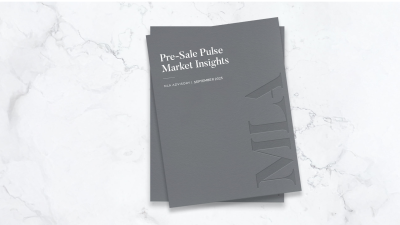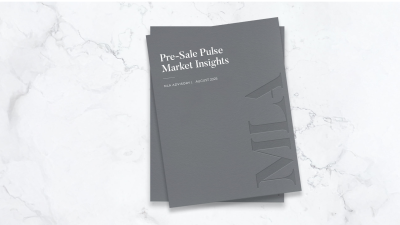Despite low inventory and high costs, the Metro Vancouver real estate market is seeing a surge in demand and confidence among buyers, with home sales approaching levels seen last Spring. The rebound in sales indicates that buyers are returning with renewed confidence after a challenging year for the market. While inventory levels remain low, the competitive conditions create a situation where any resurgence in demand results in price escalation, despite the elevated borrowing costs. These pressures will likely continue as lenders offer lower rates in response to changing expectations on interest rates over the next year, potentially increasing buying power and further fueling demand in the market.
STRONG BUYER CONFIDENCE IN METRO VANCOUVER REAL ESTATE MARKET DESPITE LOW INVENTORY AND HIGH COSTS

Greater Vancouver
2,741
2,741
SALES
+8.0%
+8.0%
MoM%
-16.5%
-16.5%
YoY%
+2.4%
+2.4%
MoM Benchmark %
GREATER VANCOUVER SEES MODERATE YET CONSISTENT DEMAND DESPITE LOW INVENTORY
In April, 2,741 resales were transacted in Greater Vancouver, 16.5% fewer than in April 2022 and 15.6% below the 10-year average. However, resales increased by 8.0% month-over-month. Unlike in 2021 and 2022, when market activity peaked in March, the increasing activity we experienced in April indicates a moderate yet consistent demand that aligns with our sentiment for the year.
Though market conditions have improved, Greater Vancouver has yet to have a commensurate rise in new inventory. The addition of 4,307 new listings in April was 22.0% below the 10-year average, marking five months of historically low new inventory added to the market. While an improving market outlook may motivate homeowners to list their property, it is unlikely this would be enough to improve buyer conditions significantly.
Considering all this, it may not be a surprise that composite benchmark pricing increased in April. Overall values rose 2.4% from March to 5.3% from the start of the year. For reference, apartment townhomes and detached housing increased by 3.5%, 5.7%, and 6.4% from the beginning of the year, respectively.
Sales to Listing Ratio
33%
33%
All Property Types
40%
40%
Townhouse
37%
37%
Condo
24%
24%
Detached
Fraser Valley
1,554
1,554
Sales
+0.3%
+0.3%
MoM %
-5.1%
-5.1%
YoY%
+2.8%
+2.8%
MoM Benchmark %
LOW INVENTORY, STEADY SALES, AND SLIGHT PRICE INCREASE
The challenge of rising demand and declining supply was not unique to Greater Vancouver. The same market conditions persisted in the Fraser Valley. Like Greater Vancouver, the Fraser Valley Real Estate Board recorded steady sales in April, with 1,554 resales processed through MLS. The figure was nearly unchanged from March but down 5.1% from the previous year. The Board saw 2,478 new listings in April, a drop of 3.2% from March and 31.6% compared to 2022. The low inventory led to a slight price increase, with the composite Benchmark price up 2.8% to $992,000.
Sales to Listing Ratio
34%
34%
All Property Types
59%
59%
Townhouse
47%
47%
Condo
34%
34%
Detached
Greater Victoria
637
637
Sales
+0.8%
+0.8%
MoM%
-22.7%
-22.7%
YoY%
TIGHT SUPPLY-DEMAND CONDITIONS CONTINUE
Victoria's real estate market continues to grapple with supply-demand conditions, with sales-to-listings for the month at 40% – returning to levels not seen since the Spring of last year. While Vancouver has the benefit of neighbouring cities such as Burnaby, Coquitlam, and Surrey, who aid in increasing the region's housing supply, Victoria's neighbours have done little to contribute to this issue (although Langford should be applauded for its growth, it has only recently started building necessary medium- and high-density housing).
As a result, the tight market conditions in Victoria will likely persist for the foreseeable future. Nevertheless, the market may present an opportunity for developers willing to navigate the notoriously difficult entitlement process on the Island. Those who can receive approval will face a pool of motivated buyers with little competition.
Stay Tuned
Stay tuned for a Comprehensive perspective of the data and underlying insights on the resale and presale markets during our May 2023 edition of the Presale Pulse.


